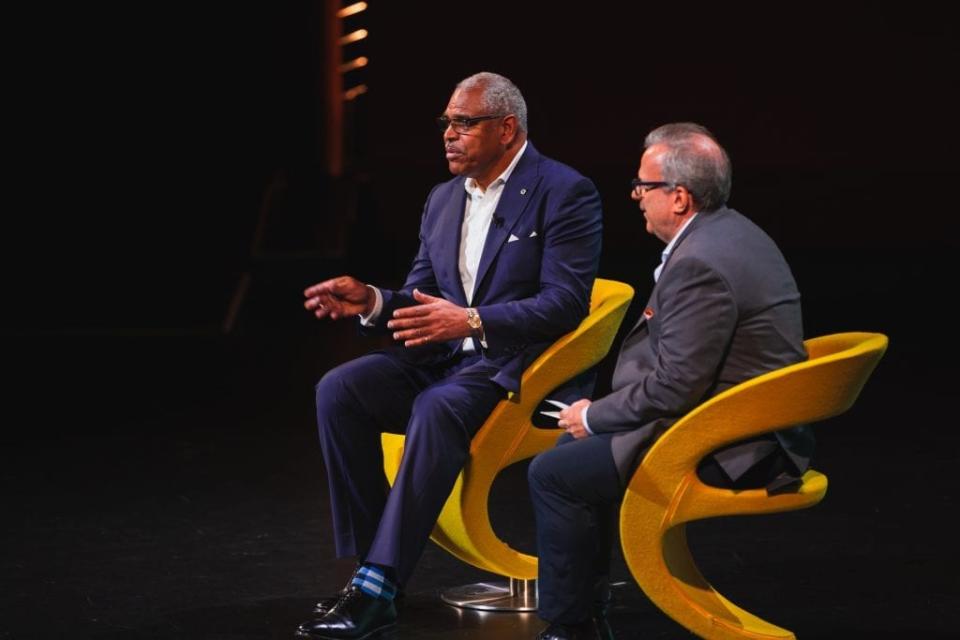How Carnival Grapples With Cruise Overtourism and Sustainability

Global cruise lines have been on the frontline of worldwide discussions about the impact of travel on locals communities and the environment.
Arnold Donald, CEO of Carnival Corp., stressed at Skift Global Forum 2019 in New York City on Wednesday that cruise lines have a minor impact on increased tourism around the world despite the strong focus on the sector’s role in particularly vulnerable port cities.
“We go to small places, like Half Moon Cay, we go to larger places like Venice,” said Donald. “If it is a smaller place where we are pretty much the economy, we are bringing 1,000 people. Our responsibility in the other places is to respect the locals… if the locals aren’t happy, the guests aren’t welcome, and the guests aren’t happy.”
Donald talked down the impact of cruise line port calls on the overtourism epidemic. There’s a reason, he suggested, that cities affected by increased cruise traffic still want cruisers to visit.
“At any point the number of cruise guests is very small compared [to domestic visitors and others],” said Donald. “For us, because we are visible, we feel we need to lead the way and connect with local communities so they feel were improving the quality of life for the locals… [for instance] the mayor of Dubrovnik will tell you he wants more cruise, but the reality is that the cruise guests do spend well, they don’t spend necessarily as much as someone staying at a week at a hotel.”
Regarding the company’s $20 million penalty with the U.S. government for excessive pollution on a variety of Princess Cruise Line voyages, Donald believed the incident was more of a mistake than an endemic element of the cruise line’s practices.
“In the end, they made a mistake,” said Donald. “How do we make certain we don’t make that mistake again we aspire to not make mistakes. Our attitude about it is we aspire to be the best, and we take this as lessons learned and an opportunity for improvement.”
Finally, Donald agreed that travel companies should do more to provide consumers with information on their sustainability practices.
“We do have an obligation to provide information so people can make good choices, and we have an obligation not just how we manage things on the ship, but how we source things that are inherently better for the environment,” said Donald.
Subscribe to Skift newsletters covering the business of travel, restaurants, and wellness.

 Yahoo Finance
Yahoo Finance 